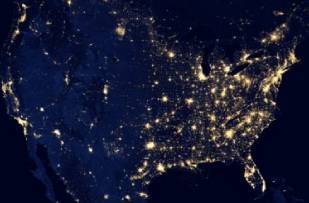Human rights movements are engaged in a variety of tasks all across our planet. The cause of advancing the rights of indigenous peoples, minority groups, and those suffering from all the plagues that come from poverty and hunger is a noble one. But there are many hurdles standing in the way of true progress on a number of these key issues.
Internet Access

Internet access can vault many of these challenges. This is why organizations all around the world are pushing for global satellite internet access, an advancement that would revolutionize the way people communicate with one another and consume information about their slice of the earth and the circumstances that they are experiencing.
Legal professionals like Malliha Wilson know the importance of internet connectivity. As a Tamil Canadian attorney, Wilson is an advocate and specialist in the legal rights of minority and indigenous communities, and she practices human rights law as a primary area of expertise. Wilson is senior counsel at Nava Wilson LLP, a Toronto-based attorney’s office that navigates these sensitive issues on a daily basis.
With the rollout of a global broadband provision, more people would be able to reliably access the educational and connectivity applications that we often take for granted in locales with great satellite and broadband coverage. The internet levels the playing field by giving people access to the data sources that they need to raise their circumstances. A child anywhere in the world can learn a new language with the help of YouTube or television streaming services, and a farmer who has plowed the land by hand all his life can quickly learn to incorporate new techniques that will save his physical health over the long run.
Internet connection quickly and forever changes the ways in which people communicate and think about the world around them. With the ability to search for literally anything with just a few clicks, learning about the world and the things within it becomes a pastime rather than a chore that must be completed.
Indeed, online college degrees are growing in popularity as well. As more and more university graduates leave campus without ever stepping foot on the quad, so too is education transforming in this new digital age to be more inclusive and easier to access for everyone. Equity in education and intrigue are just some of the changes that are arriving with more seamless internet coverage, but there are still holes in the network: Holes that a global satellite internet system could fill in.
Global Satellite Networks

OneWeb CEO, Neil Masterson, along with founder Greg Wyler, share in this vision. With an array of Low Earth Orbit (LEO) satellites—only requiring about 650 to complete the mesh network—OneWeb hopes to revolutionize the ways in which people connect with the world around them and with each other as well. OneWeb satellites are currently being launched into orbit to form a constellation of internet infrastructure that surrounds the globe. In Low Earth Orbit, these can provide an easy to acquire access to the internet that was once thought impossible.
OneWeb has recently raised a significant amount of working capital with the help of SoftBank and Hughes Network Systems. The cash flow amassed by OneWeb sets the firm on pace to nearly complete its constellation of access-granting satellites by mid-2022, but another billion dollars will need to be raised in the time between the present and this goal. The Chairman of OneWeb, Sunil Mittal has estimated that funding the outstanding satellite construction and launches exists within the sights of the firm in its current state.
Building a brighter future for the entire world is the work of professionals like OneWeb technicians and Wilson. A bright future surely awaits us all with these exciting new events unfolding.

